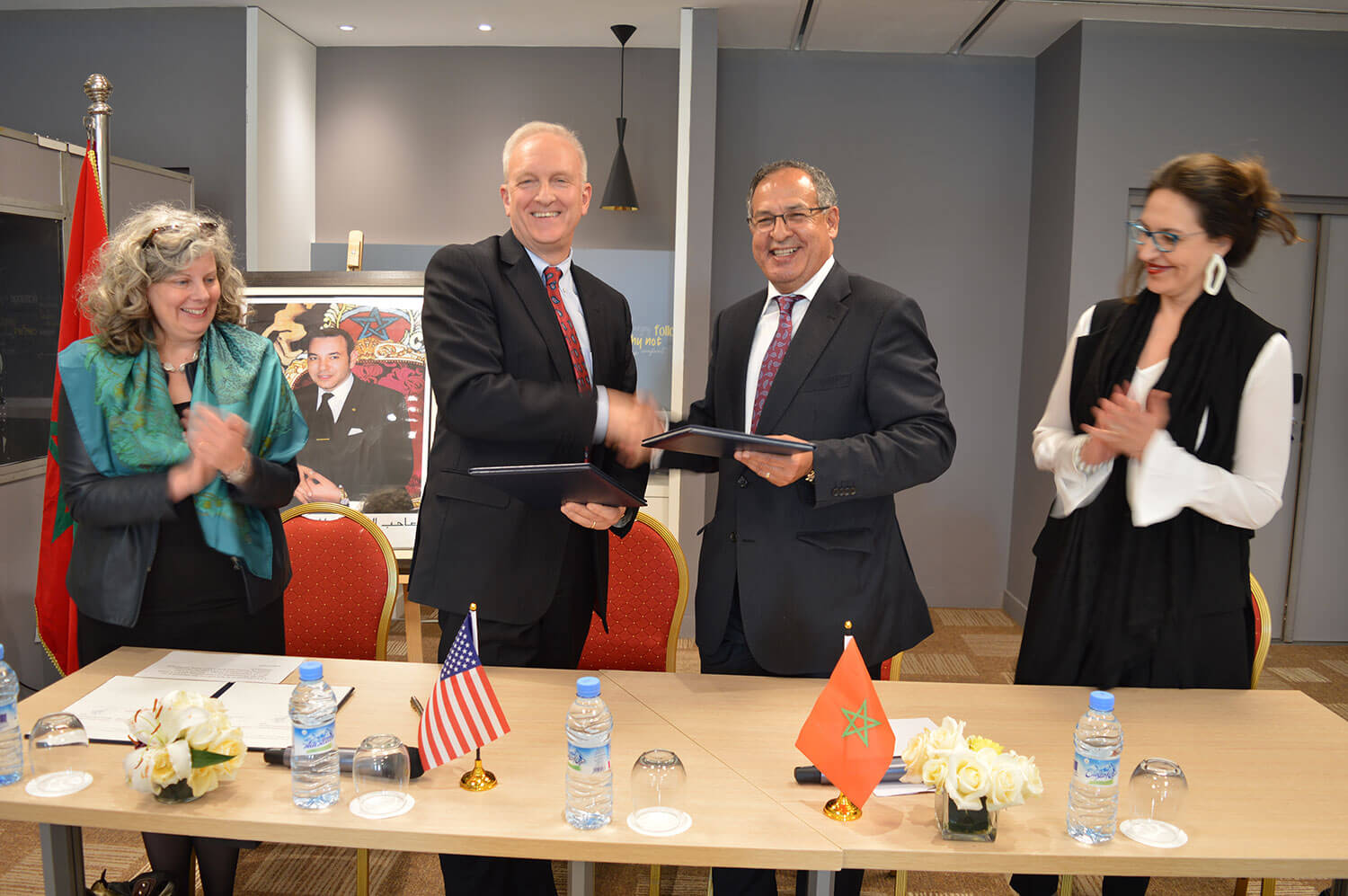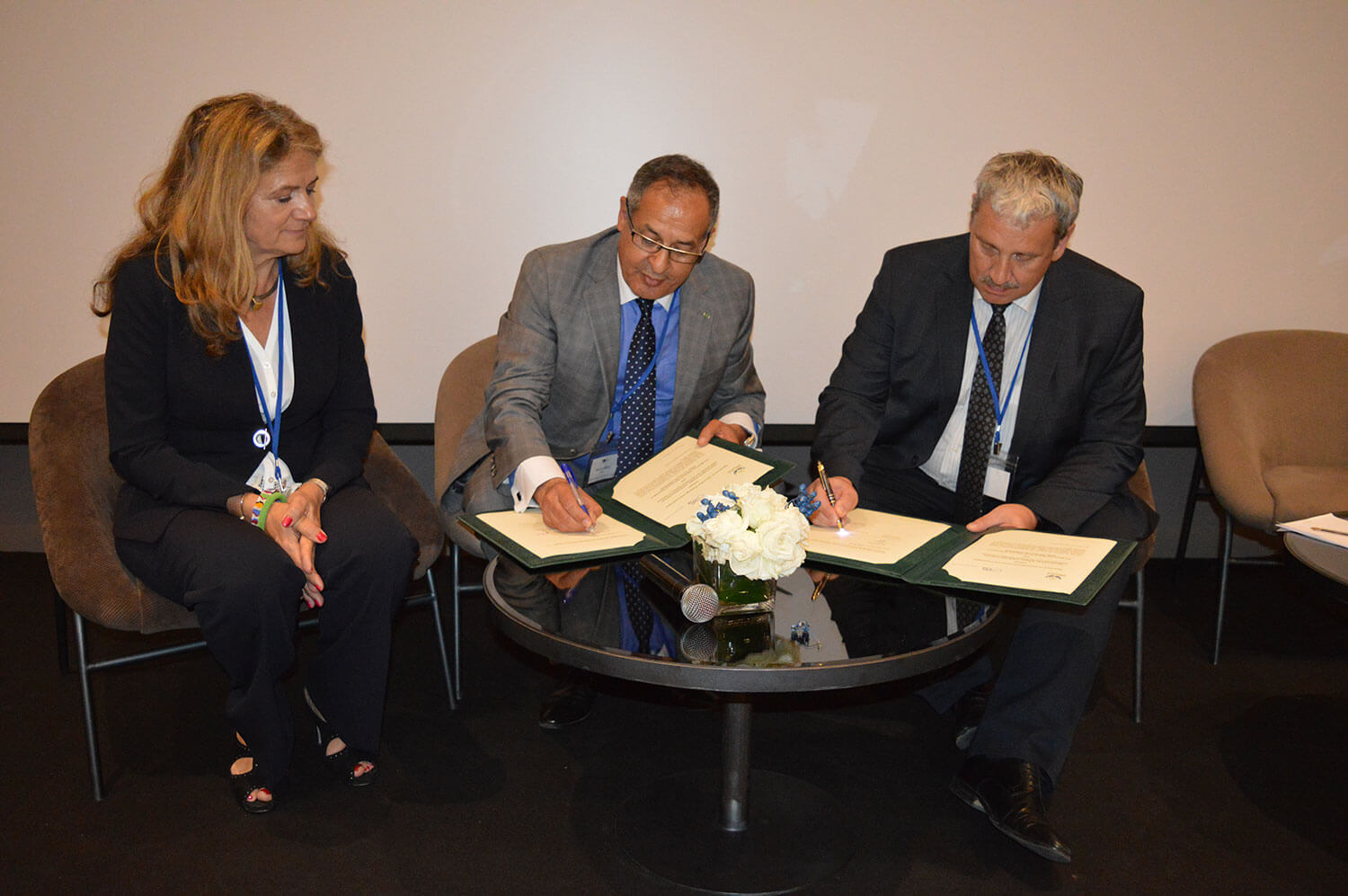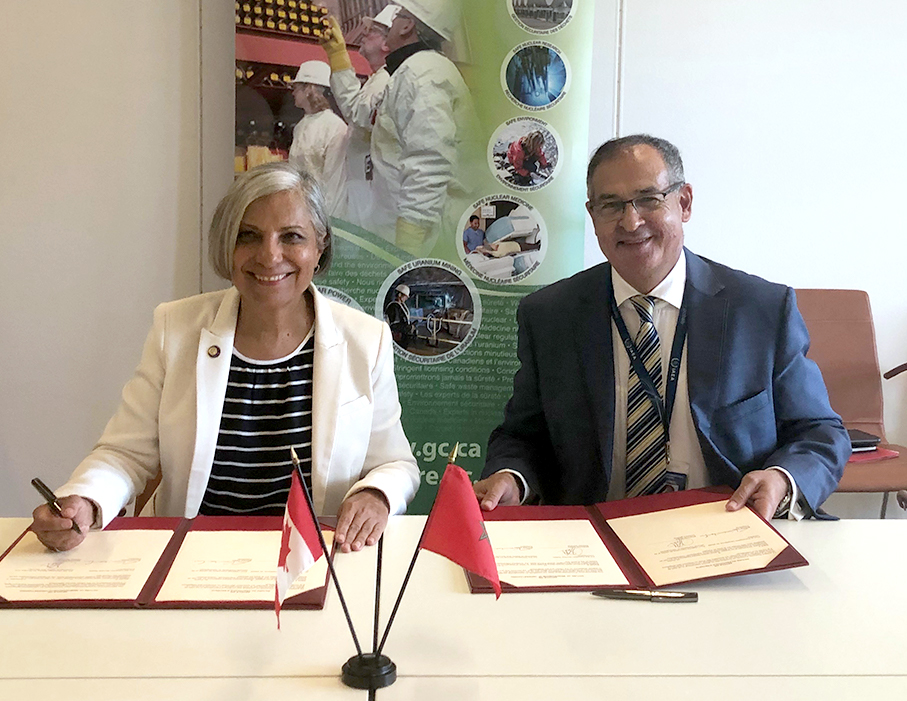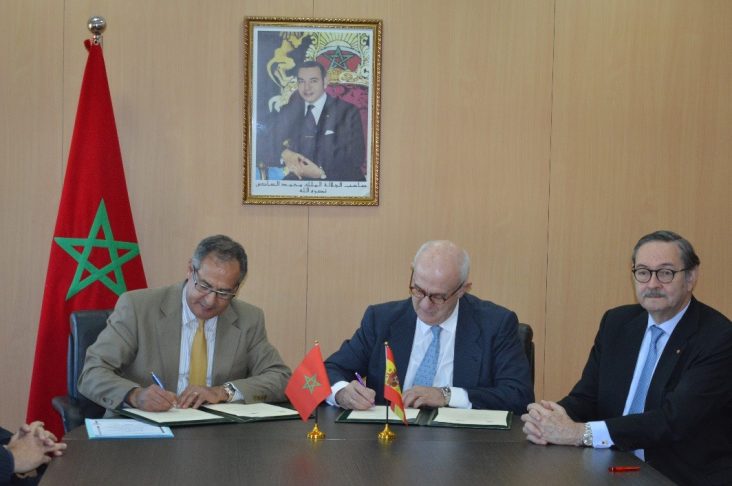International Cooperation
Presentation
AMSSNuR aims to “implement national and international cooperation strategies in line with AMSSNuR’s strategic directions by developing its partnership network at the national and international levels.”
Cooperation with the International Atomic Energy Agency “IAEA”
Considered a member state of the International Atomic Energy Agency since 1957, the Kingdom of Morocco actively participates in the work of the IAEA, covering the areas of nuclear and radiological safety and security.
AMSSNuR, in collaboration with the IAEA, works to promote the safe, secure, and peaceful use of nuclear and radiological technologies. AMSSNuR seeks technical assistance from the IAEA in all its areas of activity (nuclear and radiological safety and security, radiological emergency management, nuclear safeguards, communication with the public and stakeholders, management of regulatory authorities, etc.).
Thus, the IAEA provides its member states with a multitude of services to help them develop opinions on the various aspects of SSNR. To this end, AMSSNuR benefits from missions, helping it to strengthen and improve its regulatory infrastructure and consolidate its expertise based on «safety standards», good practice guides, and others.
In the framework of multilateral cooperation, AMSSNuR, in partnership with the IAEA for its Member States, organizes several events varying between conferences, meetings, international, regional, and national workshops, expert missions, courses, and internships. This dynamism advocated by AMSSNuR demonstrates its willingness to position itself as a regional leader in SSNR and seal its strategic vision for the protection of man, the public, and the environment against the risks associated with the use of sources of ionizing radiation.

European Union (INSC M03.01/15)
On February 13, 2018, AMSSNuR launched a cooperation project with the European Commission to develop its capabilities as a regulatory body for nuclear and radiological safety and security. With an amount of approximately 2 million euros and covering the period 2018-2021, this cooperation project concerns the majority of AMSSNuR’s business and support programs. It covers 11 tasks, including the following:
Regulatory framework and the implementation of specific procedures; the preparation and response to radiological emergencies; the optimization of medical exposure to ionizing radiation; national radioactive waste management policy and strategy; non-regulatory source research and nuclear safeguards; human resource development; the communication strategy; and the accreditation process for technical service providers.
Development of a Nuclear Detection Architecture, supported by Global Affairs Canada
AMSSNuR, represented by its previous Director General, Dr. Khammar MRABIT, signed on February 26, 2018, a memorandum of understanding with the Department of Foreign Affairs, Trade, and Development of Canada “DFATD”.
The main objective of this memorandum of understanding was to develop a nuclear detection strategy for the Kingdom of Morocco.
At the end of this memorandum of understanding, a workshop was organized and attended by 11 foreign experts and 19 Moroccan experts who benefited from this national workshop. The aim of this workshop was to raise awareness among the departments and national institutions on the subject build a draft strategy for the establishment of a national nuclear detection architecture to detect and prevent illicit trafficking of nuclear and other radioactive materials outside regulatory control, give participants a realistic view of the resources available and provide potential assistance to implement a detection strategy that meets the needs of the Kingdom of Morocco.
A visit was then made to the United States of America and Canada for the benefit of a large mixed delegation of Moroccan experts to familiarize themselves with the detection architectures of these countries and to observe on the spot the mechanisms and procedures of nuclear detection at the borders of these two countries.
Memorandum of Understanding
- Spain
- MAURITANIA
- RUSSIA
- ARGENTINA
- IVORY COAST
Memorandum of Understanding for the exchange of information with the Spanish counterpart, the Consejo de Seguridad Nuclear (CSN).

Memorandum of Understanding with the Autorité Nationale de Radioprotection, de Sûreté, et de Sécurité Nucléaire of the Islamic Republic of Mauritania.

Memorandum of Understanding on cooperation in the fields of nuclear and radiological safety and the peaceful use of atomic energy with the Russian Federal Environmental, Industrial, and Nuclear Supervision Service (Rostech-nadzor).

Memorandum of Understanding on cooperation and exchange of technical information with Autoridad Regulatoria Nuclear
(ARN), Argentina counterpart.

Memorandum of Understanding on cooperation and the exchange of technical information with the Autorité de Radioprotection, de Sûreté, et de Sécurité Nucléaires de la République de Côte d’Ivoire (ARSN), Ivorian counterpart.
- HUNGARY
- GERMANY
- FRANCE
- BURKINA FASO

Agreement on cooperation in the fields of nuclear and radiological safety with the Hungarian Atomic Energy Agency (HAEA), Hungarian counterpart.

Agreement on the partnership and the exchange of information with Gesellschaft für Anlagen- und Reaktorsicherheit (GRS), a German technical support organization.

Memorandum of Understanding for cooperation in the fields of nuclear safety and radiation protection with the Institut de Radioprotection et de Sûreté Nucléaire (IRSN), a French technical support organization.

Memorandum of Understanding on cooperation and exchange of technical information with the Autorité Nationale de Radioprotection et de Sûreté Nucléaire (ARSN), the Burkina Faso counterpart.
- US (NRC)
- US (DOE/NNSA)
- CANADA
- CHINA

Agreement on the exchange of technical information and cooperation on nuclear safety with the US Nuclear Regulatory Commission (USNRC), US counterpart.

Memorandum of Understanding in the fields of non-proliferation and the peaceful use of nuclear energy infrastructures with the Department of Energy – National Nuclear Security Administration (DOE/NNSA) of the United States of America.

Memorandum of Understanding on cooperation and the exchange of technical information with the Canadian Nuclear Safety Commission (CNSC), Canadian counterpart.

Memorandum of Understanding on cooperation and the exchange of technical information with the National Nuclear Safety Administration (NNSA), Chinese counterpart.





